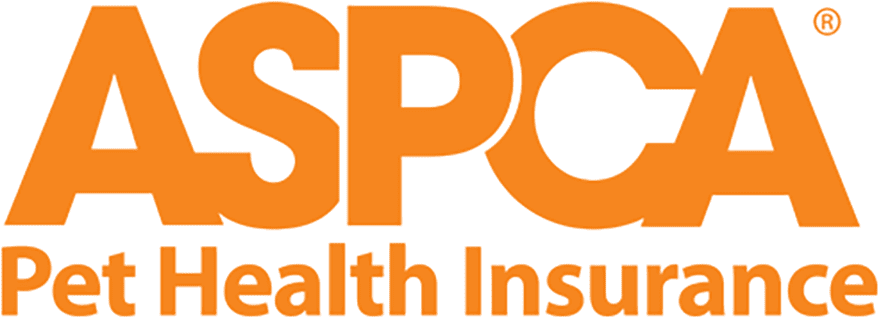ASPCA Pet Insurance Review 2024
Many or all of the products featured here are from our partners who compensate us. This influences which products we write about and where and how the product appears on a page. However, this does not influence our evaluations. Our opinions are our own. Here is a list of our partners and here's how we make money.
About ASPCA pet insurance
ASPCA earned 5 stars out of 5 for overall performance, thanks to its wide-ranging and customizable coverage. ASPCA’s base accident and illness plan covers things some other insurers don’t, such as alternative treatment, prescription food and supplements, behavioral therapy, and microchip implantation. ASPCA appears on NerdWallet’s list of the Best Pet Insurance Companies.
ASPCA is the pet insurance provider for Travelers, one of the largest auto insurers in the nation.
Strengths
In addition to its comprehensive accident and illness plan, ASPCA also offers wellness packages and an accident-only plan. It covers not just cats and dogs but also horses.
Weaknesses
The ASPCA pet insurance app draws low ratings from users. The company’s claim-processing time of up to 30 days is slower than that of some other insurers.
Note: Coverage options and availability may vary depending on where you live and the age and breed of your pet.
ASPCA pet insurance plans and coverage
ASPCA offers three types of insurance, including one plan that covers a wide range of accidents and illnesses. If you’re looking for a cheaper option, ASPCA sells policies limited to accidents only. Although its policies don’t typically cover preventive care, it sells a wellness add-on for an extra cost.
Complete Coverage
ASPCA’s main plan covers both accidents and illnesses. It will reimburse you a certain percentage of your vet bill, up to your annual maximum and minus your deductible (the amount you need to pay before your insurer will start reimbursing you).
While some other pet insurers limit older animals to accident-only coverage, ASPCA’s accident and illness plan is available to all cats and dogs with no maximum age.
ASPCA’s Complete Coverage plan for cats and dogs includes:
Exams, treatment, hospitalization and surgery for injuries and illnesses, including cancer and diabetes.
Prescription medication, food and supplements used to treat a covered condition.
Hereditary and congenital conditions.
Microchip implantation.
Alternative treatments such as acupuncture and chiropractic care.
Behavioral therapies.
MRIs, CT scans and X-rays.
Stem-cell therapy.
End-of-life expenses.
ASPCA also offers a similar plan for horses that covers:
Tooth extractions.
Prescription medication and medical supplies.
Hospitalization, surgery, exam fees and diagnostic tests.
Poison control fees.
Cancer treatments, including chemotherapy and radiation.
Treatments for colic.
Microchip implantation.
Euthanasia.
Intravenous fluids and medications.
Accident-Only
This plan covers expenses related to accidents such as bites, broken bones and torn ligaments, and does not cover any treatments related to illness. Like Complete Coverage, the accident-only plan offers reimbursement for a percentage of your vet bill up to an annual limit, minus your deductible.
For horses, ASPCA sells a plan that covers only accidents and colic.
Preventive Care
ASPCA’s preventive care is an optional add-on you can include on your Complete Coverage or Accident-Only plan without a deductible or coinsurance. (You can't buy it separately.)
You can choose from different preventive care plans: basic and prime for cats and dogs, and routine and platinum for horses. Each one has a list of services and an annual maximum payout amount. You’ll pay for your pet’s procedure out of pocket, then submit a claim to ASPCA. The plan will reimburse you up to the covered amount.
ASPCA’s Preventive Care for cats and dogs covers routine procedures based on the option you choose. These may include:
Dental cleaning.
Flea and heartworm prevention.
Vaccinations and titers.
Annual exam.
Blood screening.
Fecal screening.
Urinalysis.
Similarly, ASPCA’s Preventive Care for horses covers routine procedures outlined in the policy you choose. These may include:
Wellness exam.
Dental floating.
Blood, fecal and coggins tests.
Vaccinations and titers.
» MORE: What does pet insurance cover?
What’s not covered
ASPCA’s Accident-Only and Complete Coverage plans have certain exclusions such as:
Pre-existing conditions, except for curable conditions that haven’t recurred in at least 180 days. This exception doesn’t include knee or ligament issues.
Certain dental procedures, including cleanings (unless used to treat a covered illness).
Boarding costs.
Experimental treatments.
Breeding costs.
Cosmetic procedures.
Funeral-related costs.
House-call fees.
Herbal products such as cannabis (CBD).
Non-medical supplies like toys or bedding that don’t treat a condition.
Organ or heart valve transplants.
Prescription supplements or diets used for prevention or general health, including weight loss.
Vet treatments if you, a family member or co-owner on the account is conducting or assisting with the procedure.
The Accident-Only plan won't cover any of the above exclusions or treatment for any illnesses. Preventive care add-ons won't pay for anything besides the routine procedures specified in your policy.
» MORE: Is pet insurance worth it?
ASPCA coverage options
You can customize your policy with different deductibles, reimbursement amounts and coverage limits.
Deductibles
There’s no deductible for preventive care coverage. For cats, dogs and horses on all other plans, ASPCA offers three annual deductible options when buying a policy online: $100, $250 or $500. You can call the company to ask about other choices.
Reimbursement amounts
You can choose to be reimbursed for 70%, 80% or 90% of your vet bills with most of ASPCA’s policies. The exception is the Preventive Care add-on, which reimburses you up to the annual maximum limit listed for a given procedure. Again, you may have other options if you call the company directly.
Coverage limits
You can set your annual coverage limit anywhere from $2,500 to $10,000 when buying the Complete Coverage plan for cats and dogs online. The same online limits apply to the Accident-Only policy for cats and dogs.
Coverage limits are slightly different for horses. For plans other than Preventive Care, you can choose coverage limits of $3,000, $5,000 or $7,000.
Additional options for all plans, including an unlimited annual payout, may be available by phone.
For all animals, Preventive Care add-ons have set annual maximums for each covered procedure.
Restrictions and waiting periods
Age restrictions: Your pet is eligible for an ASPCA pet insurance plan as long as it’s at least 8 weeks old. There is no upper age limit for cats and dogs, but older horses may be eligible only for Colic and Accident coverage.
Waiting periods: A waiting period is the time between when you buy your policy and when your coverage begins. ASPCA’s preventive care coverage starts right away. Illness and accident coverage has a 14-day waiting period.
ASPCA pet insurance rates
The cost of ASPCA pet insurance depends on where you live, the coverage limits you choose and your pet’s breed and age.
To give you a rough idea of how much you might pay, we gathered sample rates for several popular dog breeds at ages 2 and 8. Rates below are sample monthly premiums for dogs living in Katy, Texas. Our sample plan was for accident and illness coverage with a $250 deductible, $5,000 of annual coverage and an 80% reimbursement rate. Your own price will vary.
Breed | Age 2 | Age 8 |
|---|---|---|
French bulldog | $63 | $140 |
German shepherd | $36 | $80 |
Golden retriever | $45 | $99 |
Labrador retriever | $45 | $99 |
Medium mixed-breed dog | $30 | $68 |
Poodle | $45 | $99 |
We also gathered rates for a variety of cat breeds with the same coverage limits as above. Rates below are sample monthly premiums for cats living in Katy, Texas.
Breed | Age 2 | Age 8 |
|---|---|---|
Devon rex | $16 | $30 |
Domestic shorthair | $16 | $30 |
Exotic longhair | $25 | $45 |
Maine coon | $25 | $45 |
Persian | $25 | $45 |
Ragdoll | $16 | $30 |
» MORE: The best cheap pet insurance
Discounts
You can save 10% by insuring more than one pet with ASPCA. People who work in a veterinary office may also be able to save 10%.
State availability
ASPCA pet insurance is available in all 50 states and Washington, D.C., though horse insurance plans have more limited availability.
Consumer experience
Website: ASPCA’s pet insurance website lets you pay your bill, submit and track claims and manage your policy. It also provides sample policies and comparisons with other pet insurance plans. You can get a quote online in most cases, but if you want unlimited coverage, you’ll need to call.
App: You can use ASPCA’s app to find a local vet, pay bills, submit and track claims and update contact information. However, the app’s poor ratings suggest that some users don’t find it to be a seamless experience.
Claims: You can submit a claim online, on the ASPCA app or by phone, email or fax. After that, you can track your claim online or through the app. ASPCA will also reach out by email throughout the claims process. You’ll receive your payment either through direct deposit or by check. ASPCA processes most claims within 30 days.
Customer service: You can reach customer service by phone at 866-204-6764 or by email at [email protected]. Log in to your member portal to access a 24/7 veterinary help line if you have questions about your pet’s health.
ASPCA vs. competitors
Here’s how ASPCA stacks up against three other popular pet insurance companies.
ASPCA vs. Nationwide pet insurance
ASPCA’s Complete Coverage plan offers similar benefits to Nationwide’s Whole Pet plan. With both, you get coverage for hereditary and congenital conditions, accidents and illnesses, alternative therapies, behavioral therapies and prescription food and supplements.
ASPCA offers the option to buy an accident-only plan, which gives you a cheaper alternative to the full Complete Coverage plan. Nationwide’s version of that is its Modular plan, which lets you pick and choose various types of coverage to customize how much you pay.
ASPCA has a shorter waiting period for cruciate ligament issues, which is two weeks compared with Nationwide's 12 months.
Coverage options | ASPCA | Nationwide |
|---|---|---|
Deductible | $100, $250 or $500. | $250 per year. (Other options may be available online or by phone.) |
Reimbursement | 70%, 80% or 90%. | 50% to 90%, depending on the plan. |
Annual limit | $2,500 to $10,000 per year. (An unlimited option may be available; call the company for details.) | $5,000 to unlimited, depending on the plan. |
ASPCA vs. Embrace
ASPCA and Embrace both offer similar accident and illness plans. Both companies cover hereditary and congenital conditions, exam fees for accidents and illnesses, and alternative and behavioral therapies. However, Embrace doesn’t cover prescription food and supplements unless you buy a wellness plan, while ASPCA includes the coverage in its accident and illness plan as long as the food treats a covered condition.
ASPCA also offers an accident-only plan, which is available for any pet without upper age limits. Embrace’s accident-only plan is mostly for pets 15 years old and above.
Embrace generally requires a six-month orthopedic waiting period for dogs, while ASPCA’s waiting period is 14 days for all conditions, including cruciate ligament issues. However, Embrace has a shorter waiting period for accidents at 48 hours.
Embrace responds more quickly to claims, processing most in 10 to 15 business days versus up to 30 days for ASPCA.
Coverage options | ASPCA | Embrace |
|---|---|---|
Deductible | $100, $250 or $500. | $100 to $1,000 per year. |
Reimbursement | 70%, 80% or 90%. | 70%, 80% or 90%. |
Annual limit | $2,500 to $10,000 per year. (An unlimited option may be available; call the company for details.) | $5,000 to unlimited. |
ASPCA vs. Healthy Paws
Healthy Paws and ASPCA both offer a plan that covers accidents and illnesses including hereditary and congenital conditions, alternative therapies and prescription medicine. But Healthy Paws doesn’t cover certain things ASPCA does, like prescription food or the vet’s exam fee when your pet is sick or injured.
Healthy Paws may offer more deductible and reimbursement options than ASPCA, depending on your pet. However, Healthy Paws offers only this one plan and doesn’t provide wellness coverage or accident-only policies.
ASPCA’s waiting period is similar to that of Healthy Paws. ASPCA has a waiting period of 14 days for all conditions, while Healthy Paws has a 15-day waiting period in most states. However, Healthy Paws also has a 12-month waiting period for hip dysplasia if your pet is younger than 6 when you buy the plan. (Healthy Paws doesn’t cover hip dysplasia at all for pets enrolled at age 6 or older.)
Claim reimbursements with ASPCA may take longer than with Healthy Paws. Healthy Paws completes most claims within two to 10 days, while ASPCA reimburses claims within 30 days.
Coverage options | ASPCA | Healthy Paws |
|---|---|---|
Deductible | $100, $250 or $500. | $100 to $1,000 per year. (Not all options are available to all pets.) |
Reimbursement | 70%, 80% or 90%. | 50%, 60%, 70%, 80% or 90%. (Not all options are available to all pets.) |
Annual limit | $2,500 to $10,000 per year. (An unlimited option may be available; call the company for details.) | Unlimited. |
How we review pet insurance
Our writers and editors follow strict editorial guidelines that ensure fairness and accuracy to help you choose the financial products that work best for you. In our pet insurance reviews, we consider coverage, discounts, financial strength ratings from AM Best and more to determine our star ratings.
Our rating system rewards companies that cover a wide range of potential expenses, offer many ways to customize your plan and have a strong financial rating. Within the consumer experience category, we looked at features such as mobile app ratings and whether the company offers direct vet payments. To calculate each insurer’s rating, we adjusted the scores to a curved 5-point scale.
Dive deeper with our criteria for evaluating pet insurance companies.
Pet insurance star ratings
NerdWallet’s pet insurance ratings reward companies for customer-first features and practices. Ratings are based on weighted averages of scores in several categories, including financial strength, scope of coverage, the ability to customize your plan and more. Our “consumer experience” category looks at factors such as website transparency and mobile app ratings. To calculate each insurer’s star rating, we adjusted the scores to a curved 5-point scale. See our full pet insurance methodology.
These ratings are a guide, but we encourage you to shop around and compare several insurance quotes to find the best rate for you. NerdWallet does not receive compensation for any reviews. Read our editorial guidelines.
Pet insurance sample rates
To find sample pet insurance rates, NerdWallet gathered quotes for the base level of accident and illness coverage on each insurer’s website. Quotes reflect the monthly cost of a policy and do not include wellness coverage or other optional add-ons. Each plan for a given company had the same deductible, coverage limit and reimbursement rate for all sample pets.
These are sample rates gathered for specific pets living in Katy, Texas. Your own rates will be different.



